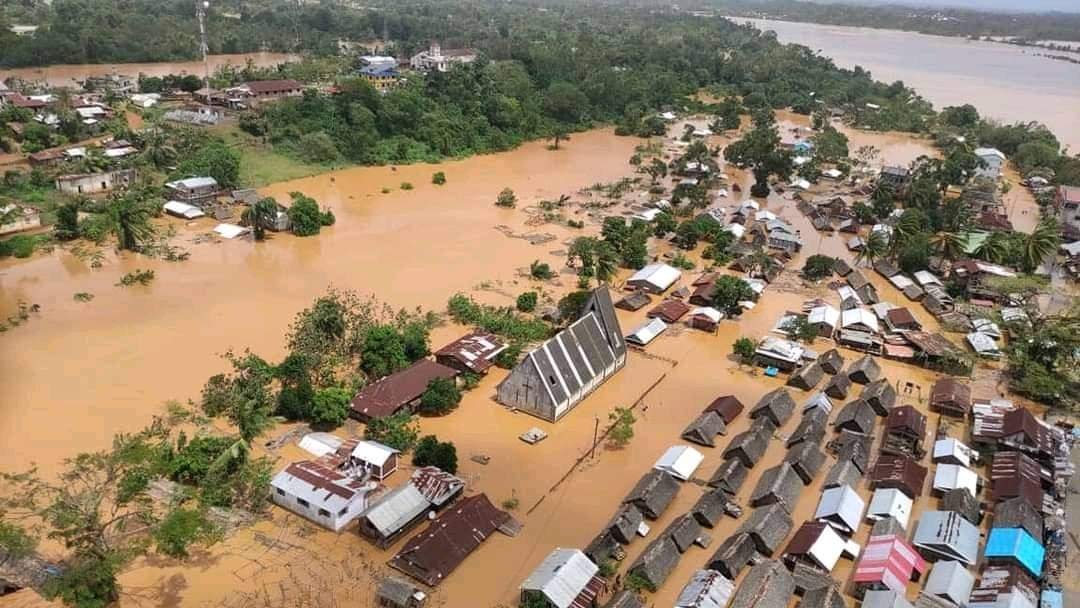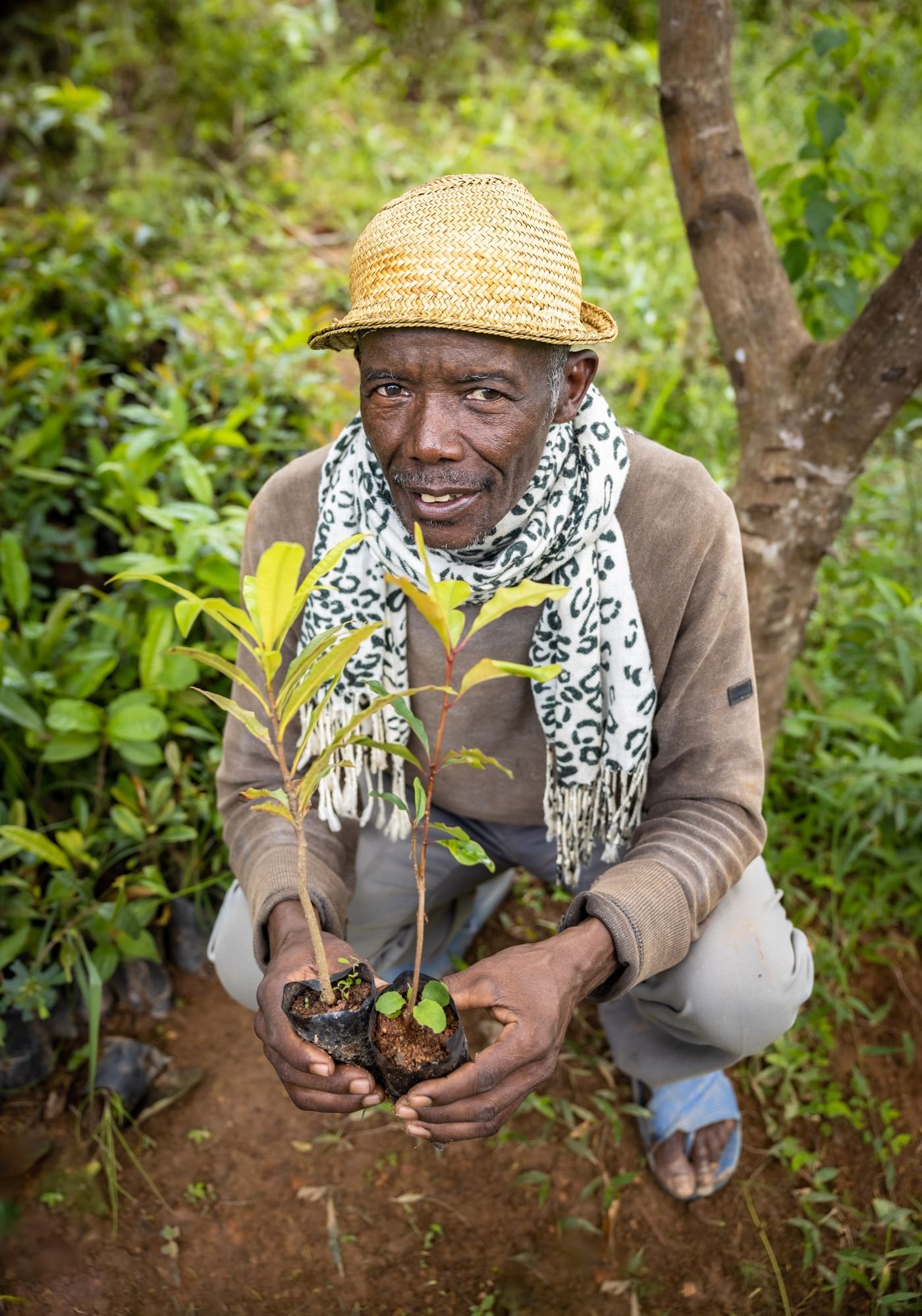
WE BELIEVE IN CLIMATE ACTION
Madagascar is the 3rd most vulnerable country to the impact of climate change in the world
Subsistence farmers in Madagascar are on the frontline of climate change. They face devastating realities every day. They are trying to adapt and are ready to help, despite themselves having the tiniest of carbon footprints contributing to global warming.
Climate change is having a massive impact in Madagascar, this includes:
Increased temperatures
Droughts
Cyclones, landslides, deforestation
Flooding
Devastation of crops, land and infrastructure
Increased pests and crop diseases, e.g. locust plagues
Unpredictable and unreliable seasons, leaving farmers unsure when to plant and what to plant
Leaving farmers and the people of Madagascar cut off from supplies, markets and communications, resulting in price hikes in basic foodstuffs
Increased poverty, food insecurity and famine in an already desperate situation
A school is destroyed after cyclone Freddy
Flooding after the cyclone shows the impact of climate change on Madagascar
Floods in climate change show the extent of the damage
Climate actions benefit both people and nature
We believe supporting positive climate actions are helping in a variety of ways and working hand in hand with the people of Madagascar. We see it every day. Climate actions include:
Protecting watersheds with tree and shrub planting on slopes and strengthening management and rules on land use around water sources
Using new planting techniques like contour planting, mixed crops and agroforestry to stabilise and prevent erosion, soil water management, shade and rehabilitation of unused slopes
Diversification of crops, including those that are fast growing and thrive in different seasons like sweet potatoes, potatoes, yams and bananas
Initiating emergency planning so plans are in place to rebuild transport infrastructure before or post-cyclones and floods
Building cyclone-resistant schools, health centres and municipal buildings that also provide shelter during cyclones. and ensure institutions can recover as soon as possible after events.
Using fuel efficient stoves to prepare meals for school children
Together we can slow climate change
Although the populations living around Madagascar’s forest are amongst the poorest people in the world they are in a position to, and with outside support prepared to, contribute to the well-being of the planet by taking climate action.
With support, partnership and careful planning they care for the remaining forests by finding alternative forest-friendly livelihoods and by protecting them from destruction by others, whether they come from nearby or the other side of the world.
Within our tree planting, whether growing fruit trees or trees for timber and fuel, we plant indigenous trees to increase permanent forest cover - extending cover, filling in bare patches and joining up islands of trees.Climate change – What’s happening?
Off the tropical east coast of Africa, Madagascar is right in the path of ever more frequent cyclones building across the Indian Ocean and from the southern Antarctic waters. Cyclones bring high winds and floodsand they are becoming more intense. There were five in 2023. Families died in houses crushed by landslides. Swathes of crops were buried under sand washed down from the hills. Floods killed and wiped out whole villages and submerged towns.
The seasons are changing and becoming less predictable with erratic droughts, and rains ever more the norm.
For a farming population, who live in lightly built buildings with no options to adapt, it is a frequent disaster.
“When it rains it really rains and when it is dry it is dry for ages. We don’t know when to plant our crops anymore.” Jonah, an 83-year-old farmer explains.
Jonah, an 83 year old farmer, faces the impact of climate change
For animals and ecosystems, it is even harder. Changing average temperatures and humidity play havoc with the intricate coevolution between plants and animals. When fruit and new leaves are not there when they are meant to be, baby animals die in the cold and the wet, some plant species thrive and smother out others and the same winds, droughts and floods kill trees and animals.
What can we change?
For people to survive, the first thing is to diversify crops. Key is to favour quick growing crops and stagger them throughout the year, to grow surplus and store them. New techniques of agroforestry planting across slope contours and digging shelves to stop landslides and soil
Further building of cyclone-proof schools and health centres where people can shelter during the cyclones and which remain standing and carry on their purpose during the recovery periods are critical. The sick can be treated and children can carry on at school whilst their parents rebuild their lives.
We can stop climate change?
Yes. Trees are the answer. Protect the precious forest that still stands and plant plant plant wherever possible. Along the forest edges and between fragments to join them up again.
“We know now that climate change is very real and here to stay, and we have to change what we do” Rapiera, farmer.






